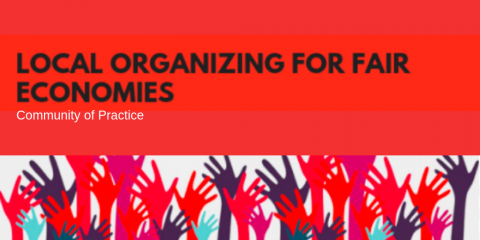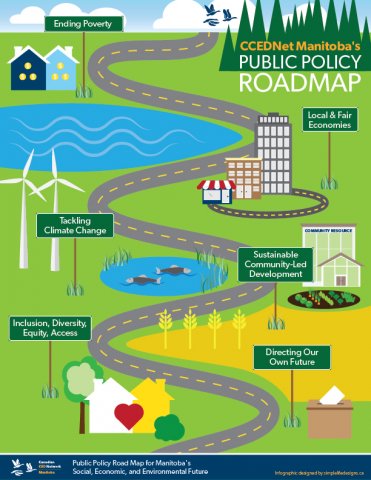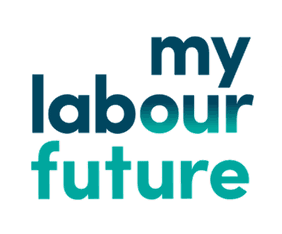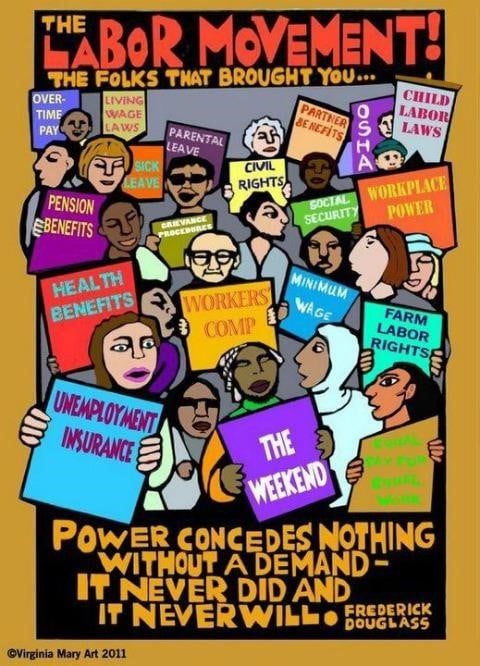 On September 10, 2019, Manitobans will go to the polls to elect our provincial government. The province is responsible for so many important aspects of our community’s futures – local economic and enterprise development, community development, housing, social services and addressing poverty, and taking care of our environment and earth. We know that our shared movement for Community Economic Development – with local & fair local economies, no poverty, and more sustainable communities – has the solutions to tackle some of our province’s toughest social, economic, and environmental challenges.
On September 10, 2019, Manitobans will go to the polls to elect our provincial government. The province is responsible for so many important aspects of our community’s futures – local economic and enterprise development, community development, housing, social services and addressing poverty, and taking care of our environment and earth. We know that our shared movement for Community Economic Development – with local & fair local economies, no poverty, and more sustainable communities – has the solutions to tackle some of our province’s toughest social, economic, and environmental challenges.
This resource page is both to help make CED a priority this election, and to keep the community informed about developments throughout the campaign.
Our Collective Vision is sustainable and inclusive communities directing their own social, economic and environmental futures. There are numerous promises from Manitoba’s four major political parties related to our vision for Manitoba’s social, economic, and enviromental future.
Below are some of the key highlights from each party’s platform related to the priority areas of our Public Policy Road Map. In cases where our partners have done analysis or questionnaires, we have links to that information.
Otherwise, the vast majority of the text is taken directly from the publicly available platforms of the political parties. Links to these documents can be found at the bottom of this page. At times, information was added from party’s specific announcements, press releases, and comments at public election forums and debates. We accept any corrections or additions to the information presented, though believe it is an accurate representation of key commitments written in party’s public platforms.
Social Future – Ending Poverty
For information related to party’s commitments related to ending poverty, social assistance/Livable Basic Needs Benefits, minimum wage, housing, childcare, and mental health, refer to the Make Poverty History Manitoba coalition’s platform update.
You can also watch highlights from the Hunger & Poverty Provincial Forum here.
Winnipeg Harvest also released a Manitoba Election Scorecard, available with great summary of party promises.
Economic Future
Progressive Conservative Party of Manitoba
- Refocus the responsibilities of the Social Impact Office to centralize and modernize various strategies including SIBs, social finance, social enterprise, and social impact procurement
- Renew Manitoba’s Sector Council program to increase employer investment in training, and ensure post-secondary training is aligned with the labour market to give our students the best chance for rewarding careers
- Fast track the development of Manitoba’s Skills, Talent and Knowledge Strategy. The Plan will focus on strengthening connections between industry, employers and apprenticeship and training providers
- Implement a comprehensive MB job works and economic growth plan to add 40,000 jobs to the private sector
- Support an employment-first approach where employment is the primary goal for working age adults with an intellectual disability
- Create a new Advisory group of employers and advocates to develop the employment potential of persons with disabilities
- Create a Team to Grow Manitoba including the Premier’s Enterprise Team, our Economic Growth Committee of Cabinet, the new Manitoba Economic Development Office (EDO) and our strategic partners (Travel Manitoba, North Forge, World Trade Centre) and regional partners (Communities Economic Development Fund (CEDF), Economic Development Winnipeg (EDW), Rural and Winnipeg Metropolitan Region)
- Establish a new rural economic development hub, based in Brandon, to service the unique needs and growth potential of rural Manitoba
- Work with industry to identify opportunities to grow investment and job creation within target sectors including agriculture, food processing, mining, forestry, transportation/logistics, manufacturing (including green innovation) and financial services
- Support at least five more social impact bonds (SIB) in second term
- Grow Manitoba’s community foundation network by creating a $5 million fund to permanently support the growth of community foundations through training and development, technology support, and investment management services and extend provincial participation in Endow Manitoba’s 24 Hour Giving Challenge until 2026
New Democratic Party of Manitoba
- Invest in infrastructure like schools, roads, and hospitals creating 50,000 jobs
- Increase small business tax threshold
- Focus on smart job growth by convening an annual Tech Summit, which includes innovation and creative economy, with education leaders, entrepreneurs, and labour, to listen to the experts, and make sure we are training workers for the jobs of tomorrow
- Create good jobs, bring unemployed Manitobans back into the workforce, and at the same time, meet social needs by better aligning social enterprises and government procurement
- Work with industry to create a Centre of Excellence for Infrastructure Innovation
- Create job opportunities for Indigenous peoples by putting Resource Revenue Sharing into a Jobs Fund for Indigenous communities
- Use social enterprise as part of Manitoba Housing’s renovation and construction program to build new social and affordable housing units throughout Winnipeg, rural Manitoba, and Northern Manitoba
Manitoba Liberal Party
- Create a Manitoba Business Development Bank (MBDB) that would provide investments in growth-focused Manitoba businesses, including start-ups, scale-ups, co-ops, social enterprise, and farming. It would be province-wide and available to entrepreneurs whether they are in Winnipeg, rural or northern Manitoba, or on a First Nation Economic Development
- MBDB would include microfinance ($2,000-$5,000) up to larger investments in the $10-million range and provide equity investments as “patient money” over a 10-15 year time horizon, to encourage true innovation
- Launching a campaign that encourages Manitobans to “shop local” at locally-owned Manitoba businesses – including stores, services, arts, culture, sports and tourism.
- Enhancing Manitoba government procurement to make it easier for Manitoba businesses to sell their products and services to the Manitoba government, and for the Manitoba government to consider “community return on investment” as a factor in spending and procurement decisions, not just “value for money.”
- A voluntary “Manitoba Works for Good” jobs program that would pay individuals who find themselves out of work with to do jobs in the public interest, as an alternative to EIA or basic income
Green Party of Manitoba
- Offer support to businesses interested in making the transition to renewable energy
- Undertake measures intended to ensure that all economic activity and its impact are both ecologically sustainable and socially just
- Undertake actions to replace jobs lost during the transition away from fossil fuels with a larger amount of better, long-term employment opportunities with more social and environmental benefits
- Make local industry a priority by encouraging trade that is sensible, sustainable, and ultimately beneficial to Manitobans
- Support and invest in small Manitoban companies producing goods for local markets by directing government assistance toward smaller businesses, especially new and young independent entrepreneurs
- Support and invest in community economic development initiatives
- Support green energy construction projects that will create jobs and help transition rural and northern communities to energy independence
Tackling Climate Change
For information related to party’s commitments on tackling climate change, reducing emissions, and more, refer to the great resources below:
Wilderness Committee Manitoba Votes 2019: Candidate Survey Results
Coverage from the Forum for Our Future from Sustainable Building Manitoba
Questions related to Green Technology, Manitoba Hydro, community energy projects, and more.
Sustainable Community-Led Development
While we assume that many of the priorities in all the party platforms will affect or include community-based organizations, they are not specifically referred to as far as we can see.
Inclusion, Diversity, Equity, & Access
For information related to party’s commitments on the five priority disability issues from the Disability Matters Vote campaign, click here.
Many other priorities in the party platforms relate to inclusion or diversity, but aren’t specifically connected to CCEDNet Manitoba’s set of resolutions. We suggest reading through the platforms with a lens toward Inclusion, Diversity, Equity, & Access.
Links to Party Platforms:
Quoted text above and more information is available from Manitoba’s political party platforms, found here:
Progressive Conservative Party of Manitoba
New Democratic Party of Manitoba
Manitoba Liberal Party
Green Party of Manitoba
Other Policy Backgrounders:
Make Poverty History Manitoba’s backgrounder on the six policy priority areas are here.
Check out these one-pager Voting Guide and Information Sheets, produced by the Social Planning Council of Winnipeg here.
Read this important backgrounder on issues facing newcomers & refugees, produced by MANSO (Manitoba Association of Newcomer-Serving Organizations). This backgrounder highlights key facts, issues, and questions for candidates and is intended to support facts-based dialogue on these issues.
Election Information – How to Vote
Election day is September 10, 2019
Advance Voting is: Thursday, August 29 to Thursday, September 5. More info about times & locations here.
Register to vote and more information at Elections Manitoba.
Use CBC Manitoba’s Election Voters’ Guide for all you need to know before you vote.
Public Policy Road Map for Manitoba’s Sustainable & Inclusive Social, Economic, and Environmental Future
Unveiling the Public Policy Road Map for Manitoba’s Social, Economic, and Environmental Future
We are proud and excited to unveil the Canadian CED Network Manitoba’s newly revitalized Public Policy Road Map. Over the past two years, members have shared that our movement requires an organized articulation of our collective vision for Manitoba’s future.
These are the priorities of our Network – reimagined as a Public Policy Road Map for Manitoba’s Social, Economic, and Environmental Future. While just in time for Tuesday’s provincial election, this Road Map will guide our advocacy, organizing, and collective voice every day of the year, no matter the results on Tuesday night.
It is our collective belief that if Manitoba follows this Road Map rooted in a Community Economic Development vision, our social, economic, and environmental future will be stronger and our communities will be more inclusive, democratic, and sustainable.
When taken all together, the recommendations proposed in this document, while not exhaustive, represent solutions to some of Manitoba’s most challenging, interconnected issues.
As members know, our public policy mandate is the result of a democratic decision-making process. Every year, members work together to create a pragmatic, wide-ranging and solutions-focused set of public policy resolutions. This is the result.
When you go to vote on Tuesday, consider this Road Map when you make your decision. Ask your candidates when they knock on your door if they’ll support a Community Economic Development vision for Manitoba’s future. Copies of this Road Map will be sent to every elected MLA after the election.
In the coming days, we’ll be posting a party platform analysis, up against our revamped Public Policy Road Map.
Our Collective Vision is: Sustainable and inclusive communities directing their own social, economic and environmental futures.
Together, we’re focused on:
- Ending Poverty
- Local & Fair Economies
- Tackling Climate Change
- Sustainable Community-Led Development
- Inclusion, Diversity, Equity & Access
- Democracy & Directing our Own Future
Election Events
Previous Events:
Hunger and Poverty Provincial Forum – Tuesday, August 20th – part of Make Poverty History Manitoba’s kNOw Poverty campaign
UpForDebateMB (Gender Equality and Women’s Rights) – Wednesday, August 21
Disabilities Matters Leaders Debate – Tuesday, August 27 – part of the Disability Matters Vote campaign
Time to Talk about Public Health Care: Leader’s Debate – Thursday, August 29 – part of Manitoba Health Coalition’s campaign
Forum For Our Future: Manitoba Leaders Debate on the Environment – Thursday, September 5
More to add? Another important campaign to mention? Contact Michael Barkman, CCEDNet Manitoba Public Policy Coordinator at: m.barkman at ccednet-rcdec.ca




 Many people have contributed to the emergence and growth of community economic development in Canada, but few have been as influential as Dr. Stewart Perry.
Many people have contributed to the emergence and growth of community economic development in Canada, but few have been as influential as Dr. Stewart Perry. Community Enterprise (later the Canadian Centre for Community Renewal), and close friend of CCEDNet co-founder Mike Lewis, Stewart was active in the creation of CCEDNet and his consulting, research, and writings on CED, community and development finance were prolific and prominent in the years before and after.
Community Enterprise (later the Canadian Centre for Community Renewal), and close friend of CCEDNet co-founder Mike Lewis, Stewart was active in the creation of CCEDNet and his consulting, research, and writings on CED, community and development finance were prolific and prominent in the years before and after. 

 Two weeks ago, I was fortunate to be among 100 decent work advocates gathered in Montréal for
Two weeks ago, I was fortunate to be among 100 decent work advocates gathered in Montréal for  Created in 1919 as part of the League of Nations, the ILO is the world’s oldest international organization. It grew out of nineteenth-century labour and social movements which were a voice for social justice and higher living standards for the world’s working people. In 1946, the ILO became the first specialized agency associated with the United Nations. While in Montréal, it produced the
Created in 1919 as part of the League of Nations, the ILO is the world’s oldest international organization. It grew out of nineteenth-century labour and social movements which were a voice for social justice and higher living standards for the world’s working people. In 1946, the ILO became the first specialized agency associated with the United Nations. While in Montréal, it produced the  The inspirational vision of that declaration, and the Universal Declaration of Human Rights that followed a few years later, seem hard to imagine today. That was one of the points that came up repeatedly in discussions at My Labour Our Future – that 40 years of neo-liberalism have stunted our political imagination. As Neil McInroy of the
The inspirational vision of that declaration, and the Universal Declaration of Human Rights that followed a few years later, seem hard to imagine today. That was one of the points that came up repeatedly in discussions at My Labour Our Future – that 40 years of neo-liberalism have stunted our political imagination. As Neil McInroy of the 
 What the labour, co-operative, social solidarity economy movements and CED all have in common is their roots in organizing. They are about people coming together to oppose unfairness and propose better solutions. The labour movement is responsible for pretty much all of the social benefits we have today, from the weekend to minimum wage to family leave. The co-op and credit union movement create jobs and deliver essential services in countless places that were bypassed by mainstream economic development.
What the labour, co-operative, social solidarity economy movements and CED all have in common is their roots in organizing. They are about people coming together to oppose unfairness and propose better solutions. The labour movement is responsible for pretty much all of the social benefits we have today, from the weekend to minimum wage to family leave. The co-op and credit union movement create jobs and deliver essential services in countless places that were bypassed by mainstream economic development.  The inspirational participants at My Labour Our Future reminded me of the people who will be gathering in just two weeks in London, Ontario for
The inspirational participants at My Labour Our Future reminded me of the people who will be gathering in just two weeks in London, Ontario for  To close My Labour Our Future, Colette Murphy of the Atkinson Foundation called on participants to
To close My Labour Our Future, Colette Murphy of the Atkinson Foundation called on participants to 
 On the 10th and 11th of July 2019, more than 400 organizations committed to achieving Sustainable Development Objectives having as an inspiration the values of the Social and Solidarity Economy will be present. This is a concrete Alliance, with every stakeholder working towards a common goal: collectively designing a roadmap for a new global economy.
On the 10th and 11th of July 2019, more than 400 organizations committed to achieving Sustainable Development Objectives having as an inspiration the values of the Social and Solidarity Economy will be present. This is a concrete Alliance, with every stakeholder working towards a common goal: collectively designing a roadmap for a new global economy. On September 10, 2019, Manitobans will go to the polls to elect our provincial government. The province is responsible for so many important aspects of our community’s futures – local economic and enterprise development, community development, housing, social services and addressing poverty, and taking care of our environment and earth. We know that our shared movement for Community Economic Development – with local & fair local economies, no poverty, and more sustainable communities – has the solutions to tackle some of our province’s toughest social, economic, and environmental challenges.
On September 10, 2019, Manitobans will go to the polls to elect our provincial government. The province is responsible for so many important aspects of our community’s futures – local economic and enterprise development, community development, housing, social services and addressing poverty, and taking care of our environment and earth. We know that our shared movement for Community Economic Development – with local & fair local economies, no poverty, and more sustainable communities – has the solutions to tackle some of our province’s toughest social, economic, and environmental challenges. 
 After three long years, the City of Toronto has adopted a new landmark Community Benefits Framework which will create more opportunities for training and well paying careers in the trades through Apprenticeships with hard targets for hiring Toronto residents from historically disadvantaged communities and equity seeking groups. In addition, the framework will create more opportunities for local, diverse owned businesses and social enterprises to access City contracts through social procurement.
After three long years, the City of Toronto has adopted a new landmark Community Benefits Framework which will create more opportunities for training and well paying careers in the trades through Apprenticeships with hard targets for hiring Toronto residents from historically disadvantaged communities and equity seeking groups. In addition, the framework will create more opportunities for local, diverse owned businesses and social enterprises to access City contracts through social procurement.

 Employment and Social Development Canada is inviting participation in consultations on the development of regulations for recent amendments to Part III (Labour Standards) of the Canada Labour Code (Code) to improve protections for employees, particularly those in precarious work, while supporting productive workplaces. These amendments, introduced in Bill C-86 – the Budget Implementation Act, 2018, No. 2, aim to:
Employment and Social Development Canada is inviting participation in consultations on the development of regulations for recent amendments to Part III (Labour Standards) of the Canada Labour Code (Code) to improve protections for employees, particularly those in precarious work, while supporting productive workplaces. These amendments, introduced in Bill C-86 – the Budget Implementation Act, 2018, No. 2, aim to: